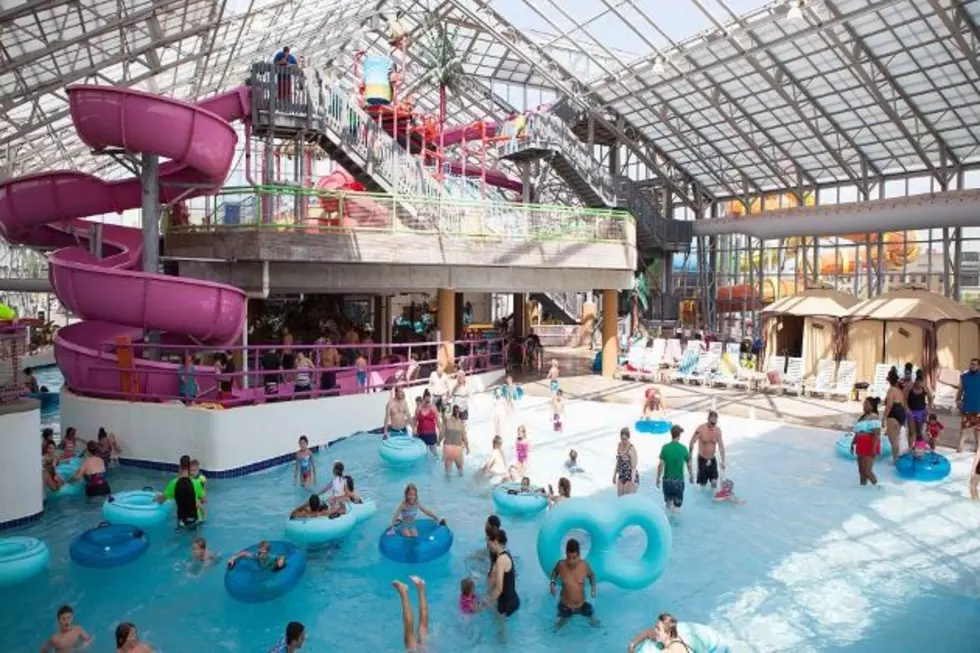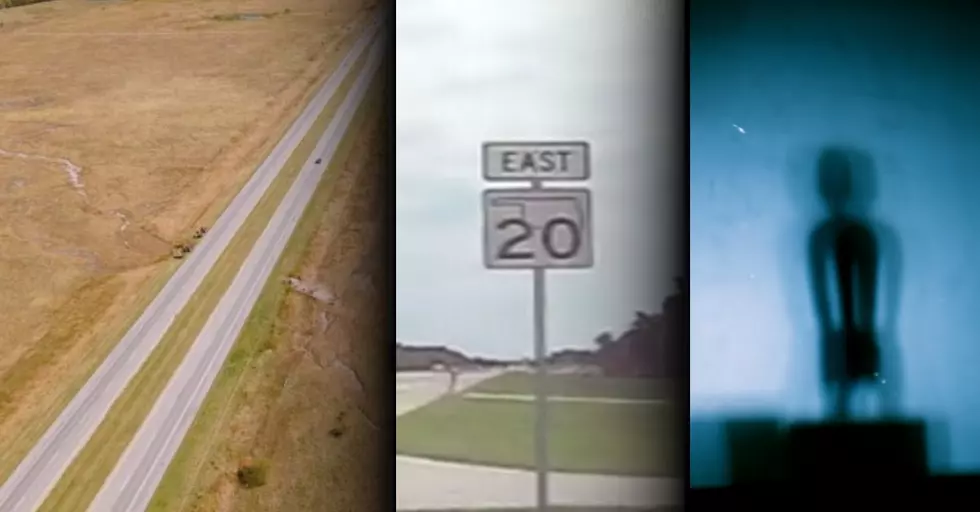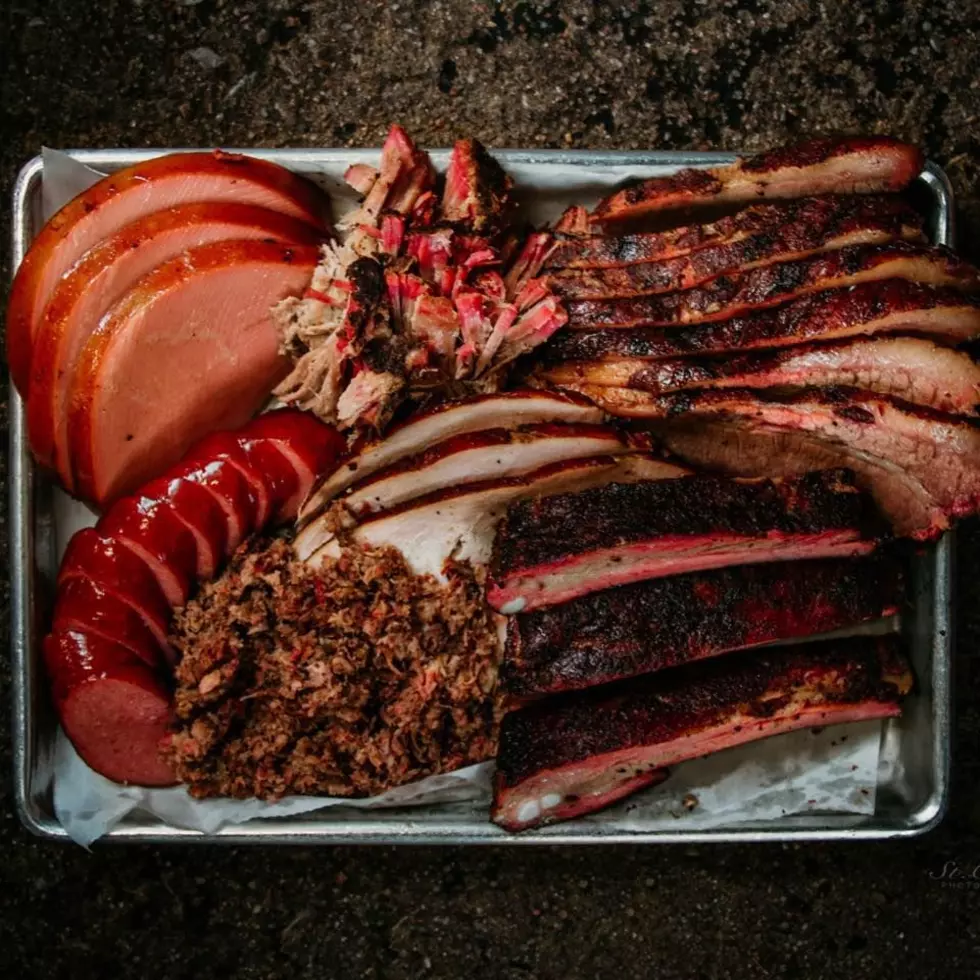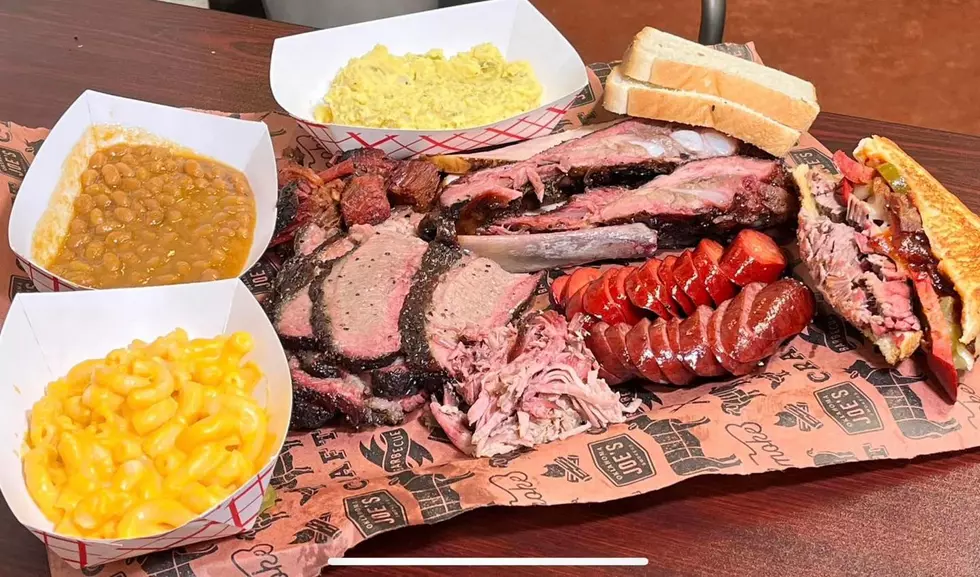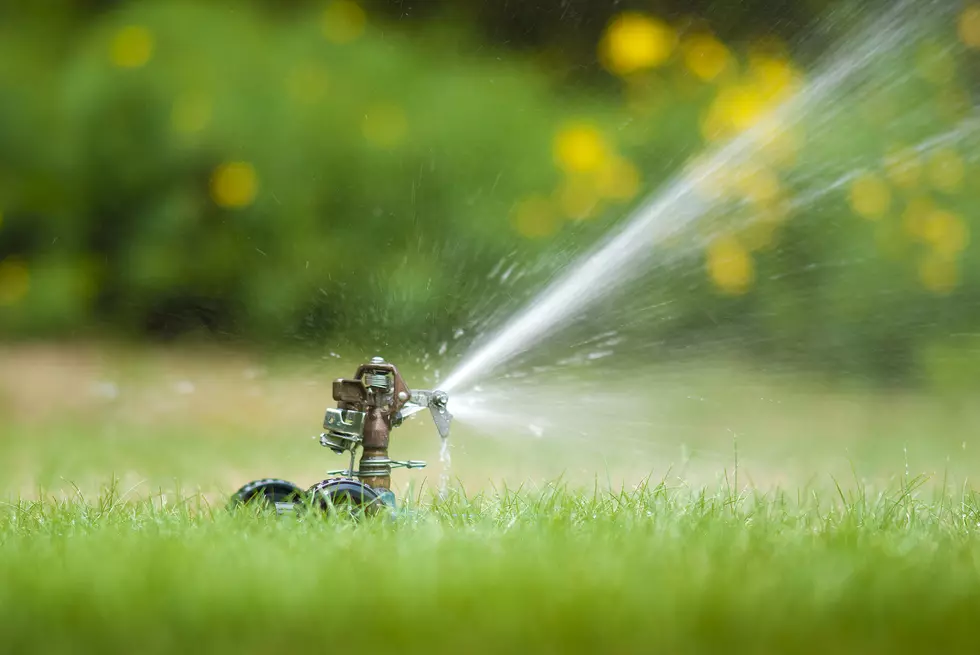
Is It Time To Stop Watering Your Lawn?
An Oklahoma City meteorologist tossed a post up on Facebook this week that has the masses arguing back and forth about Oklahoma's water supply.
Direct to the point, he advocated that Oklahoma citizens needed to stop watering their lawns because the current drought could linger on long enough to really affect the state supply during our upcoming traditional dry winter season.
Do you think he has a point?
Whether you agree or not, there is something to be said about water conservation. We've collectively watched in amazement and disbelief the water crisis out on the West Coast, but could that actually happen here in Oklahoma, more specifically in SWOK?
Instead of just simply sharing my own thoughts or opinions, let me tell you some of the more recent drought histories in SWOK.
I fancy myself to be a pretty avid outdoorsman. The greatest thing about having family across the rural expanse of this part of the state is always having a private place to hunt and enjoy the outdoors. When I moved here in 2006, my cousin and I started hunting deer.
That first Thanksgiving weekend was amazing. Steady rainfall had provided the back eighty with tons of lush, green winter wheat that the deer couldn't stay off of. The good weather continued year after year, and one chilly November Saturday we counted 96 deer within two hundred yards of our little hide.
It could have been a turkey shoot they were so thick, but things almost instantly changed in 2009.
While we knew it had been a hotter, drier summer, we always figured the deer left because we planted triticale instead of wheat on that land. Every resource we found said deer would eat it, and since the seed was a third the price we couldn't resist... but the deer disappeared. We both had unfilled tags by the time New Year's rolled around.
2010 hit even harder. A second year of drought and the ponds dried up. The CRP mostly died and the crops barely cracked the surface. We saw exactly one deer over two four-day weekends, Thanksgiving and Christmas. Oddly enough, when talking to others at the local diner, everybody said the same thing.
By 2011 hardly anything was growing. Farmers were putting in crops as if there were just going through the motions to secure future crop insurance payments, and nothing grew.
That was the year the Wichita Mountains caught on fire. Not to say there was a small wildfire in the refuge... Quite literally, the Wichita Mountains caught on fire fueled by months of over-100° days and little to no rainfall.
At that point, the drought was so bad that Wichita Falls invested in a snake-oil "cloud seeding" program. Lake Arrowhead had dried up, so to preserve precious water, WFalls started building a water treatment plant to recycle sewage water back into the drinking water system.
Lawton even got in on the worrisome conditions, issuing mandates over who could and couldn't water their lawns on specific days of the week... extra utility bill charges to boot.
SWOK and our entire region were in the direst of straights and the drought lingered on... at least until it started raining in April of 2015 and didn't stop until June.
All of a sudden, the landscape was green again, lakes filled up, rivers overran their banks, towns flooded, Fort Sill flooded, I-44 flooded, and the whole state flooded.
Remember the flood memes?
We've been pretty fortunate since then in regard to the weather, but Mother Nature seemingly cut off our water supply after giving us well above average winter precipitation in 2022.
While the recent rains provided a green flush, we're drier now than we were before and headed into a very deep drought.
So how does watering my lawn filter into this conversation?
I've had this debate with my father recently. We're both avid lawncare fanatics that enjoy a lush, weed-free yard... but my enthusiasm for it dwindles by July 4th when the heat of summer sets in. I don't like to mow when it's over 100°, so I look forward to my grass going summer dormant.
Since my dad loved his carpet of green grass, he does whatever it takes to dominate the neighbors. He lives in Northern Oklahoma where the dirt is mostly comprised of sand, and because it doesn't hold moisture he has to water it every day to retain that green status. When we had rain in the forecast, to avoid another $600 water bill, he turned the sprinklers off and forgot he did that. He literally woke up one day to a brown lawn.
While we were laughing about it, he mentioned turning the sprinklers back on to get the last bit of green out of the season, but as we roll into the first week of October, there's really no use.
It's the time of year when bermudagrass starts to go dormant. When it's warm enough weather-wise to grow, but the days continue to get shorter, bermuda tends to marble as if the lawn was a green and brown jigsaw puzzle... but it's been so dry the unwatered lawns are all just turning brown.
Since Lawton depends entirely on lake water for our supply, and the fact that lake levels are currently low and shrinking, it does make sense that homeowners should stop watering their lawns since it is so late in the growing season. There's no telling how deep or long this drought is going to be, we just don't want to end up in the same situation we were in during the last big drought.
What do you say? Time to let nature be nature, or are you opting to pump as much summer love into your yard as possible?
The top 10 Oklahoma pumpkin patches & corn mazes
More From KZCD-FM




